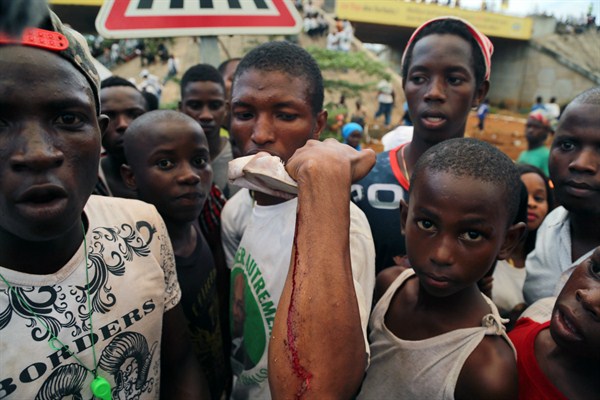In early February, Guineans voted in municipal elections for the first time in well over a decade. Though such contests necessarily hinge on local dynamics, taken together they can reveal nationwide trends and challenges, and that’s been especially true in Guinea’s case. The extensive delay in holding the vote, and the unrest that has prevailed in the weeks since ballots were cast, offer insight into the main threats to the West African nation’s stability, as well as what to expect as President Alpha Conde approaches the end of his second term—his last under the constitution.
The last time voters in Guinea were asked to pick municipal councillors, in 2005, the country was in the final stretch of more than two decades of repressive rule under Lansana Conte, who went on to die in office three years later. Conte was succeeded by Capt. Moussa Dadis Camara, who lasted about a year before being shot at point-blank range by the commander of his presidential guard unit in December 2009. Though he survived, he was replaced by an interim leader, and elections were held in 2010.
Conde won that vote, and he was re-elected in 2015. But while his government oversaw legislative elections in 2013, local polls were put off for reasons including logistical and financial hurdles, political infighting and West Africa’s devastating Ebola epidemic, which originated in southeastern Guinea and killed more than 2,500 people in the country.

